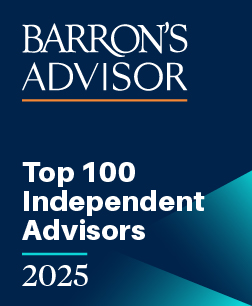The golden years are something to anticipate. Life is expected to become easier and less complicated with time for family, traveling, and hobbies becoming attainable. A comfortable retirement is part of the American dream; however, this dream has a price tag and the burden of saving for retirement luxuries has fallen to the individual. Each generation, and every individual person, faces different issues in accumulating retirement savings including the lack of employer sponsored plan options, failure to start saving until later in life, and a general lack of retirement funding. At the heart of these matters is an overwhelming degree of financial illiteracy.
Financial literacy is important during the early years as it allows an individual to strategically navigate their finances and evaluate job opportunities while moving through life’s stages. In 2020, fewer than 10 states had financial literacy course requirements for high school students; this has increased to 26 states as of June 2024. While this number shows progress, less than 5% of school districts in 10 of the remaining states, plus Washington DC, have any requirement. Without a basis to financial literacy, or even the basics of budgeting, generations of youth are set up for a retirement with a low fixed income and impoverished living standards.
In the early years of a career, when an individual should be aggressively saving for retirement, financial literacy remains low and student debt may be high. Few have the knowledge to begin saving, and those with the knowledge may not have the extra funds available. Financial literacy classes are generally not required in college or through apprenticeship programs, and those who forego schooling to begin working immediately after high school miss the opportunity entirely. Despite the burden of funding retirement having moved to the employee, the knowledge of how to handle one’s retirement has not been addressed. Most employers do not offer financial literacy courses or retirement planning.
Previously, individuals did not need to lean on their own understanding to accumulate retirement funds as employers offered retirement benefits in the form of a pension. The pension, coupled with Social Security and individual savings, was typically adequate for an individual to live comfortably in retirement. Now, according to the Bureau of Labor Statistics, only 15% of private industry employees are offered a pension. This is down from 45% in 1970. Combined with the drop in employer sponsored pension plans, many private employees do not have an investment vehicle to save for retirement on their own with 33% not having access to an employer sponsored plan in 2020.
As a person reaches middle age, generally having completed their formal education and being established in their career, financial literacy is at a high point. One would expect all adults to be financially literate and saving for retirement by this time. However, only 57% of adults in the United States are considered financially literate and less money is coming into a household as the “sandwich” years take hold. As couples begin raising children later in life, while also dealing with ageing parents, often, one spouse will discontinue full time employment, either bringing in part-time or no income. With less money coming into the household, retirement planning again falls to the wayside for one or both spouses.
Finally, an individual enters pre-retirement where the earnings are highest, debt should be at its lowest, children are grown and the financial focus finally shines on retirement savings. However, at this point, time is no longer on the individual’s side. A lack of financial literacy from a young age has left this age group scrambling to save, with 20% of adults over age 50 having a minimal amount, if any, saved for retirement and a now requiring a large portion of their income to be directed to retirement savings.
Because we do not want to face these issues, generationally or individually, the first step is to be aware of and then spread the need for financial literacy, regardless of the stage of life. The higher financial literacy, the higher the likelihood of enjoying the pre-retirement and retirement years. Utilizing accredited sources, such as magazines, books, and websites are an excellent place to start. As savings grow and finances become more complex, consider utilizing a financial professional to help navigate and assist future financial moves.
Click here to read more of my RetireMint articles. Follow me on Twitter.
This document is for educational and informational purposes only and does not constitute an advertisement or solicitation of any securities or investment services provided Mainstay Capital Management, LLC (“MCM”). This document should not be construed as investment, tax, or legal advice, or a solicitation, or a recommendation to engage in any specific strategy. MCM is an independent investment adviser registered with U.S. Securities and Exchange Commission. MCM specializes in workplace savings plan portfolio management and retirement planning advice for active employees and retirees. This document was prepared by MCM primarily based on data collected and analyzed by MCM. The opinions expressed herein are those of MCM alone and are for background purposes only. MCM does not purport the analysis to be full or complete or to constitute investment advice and should not be relied on. In addition, certain information contained herein or utilized to draw the conclusions contained herein has been provided by, or obtained from, third party sources. While MCM believes that such sources are reliable, it cannot guarantee the accuracy of any such information and does not represent that such information is accurate or complete. All materials and information are provided “as is” without any express or implied warranties by MCM. MCM charges its fee based on a percentage of assets under management, which creates an incentive and conflict of interest to increase assets in that account. Furthermore, MCM has two different fee schedules, and therefore has a conflict of interest when assets or accounts move from the lower fee schedule to the higher fee schedule. Opinions expressed are subject to change without notice and are not intended as investment advice or to predict future performance. Consult your financial professional before making any investment decision. Please see MCM’s Form ADV Part 2A and Form CRS for additional information.







